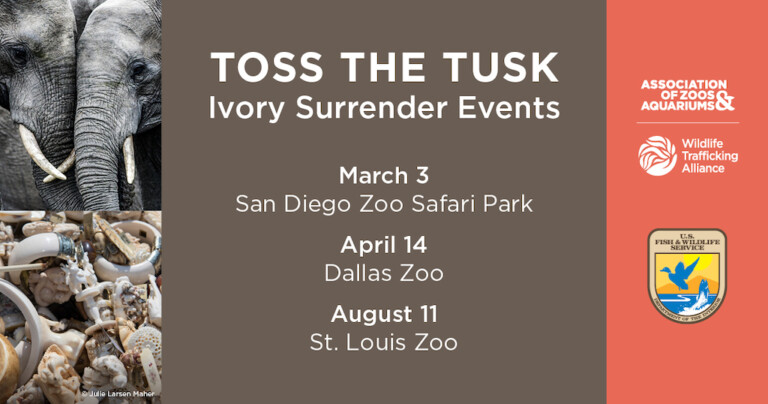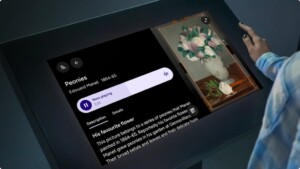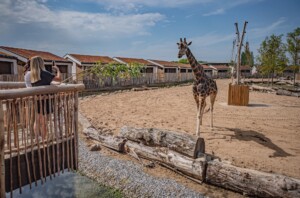AZA, the Association of Zoos and Aquariums, alongside the AZA Wildlife Trafficking Alliance, and the U.S. Fish & Wildlife Service, have announced a series of ivory surrender events in order to draw attention to the elephant poaching crisis and illegal trade of elephant ivory in the United States and to rally support for the cause of protecting elephants from wildlife trafficking.
The event will be held in three top zoos that have received AZA accreditation: San Diego Zoo Safari Park, Dallas Zoo, and Saint Louis Zoo. Members of the public will have the opportunity to bring any unwanted ivory that they would like to properly dispose of.
Putting actions in line with values
“Worldwide demand for ivory is decimating elephant populations and supporting international criminal syndicates around the globe,” says Dan Ashe, president and CEO of the Association of Zoos & Aquariums. “AZA and WTA are honored to partner with the U.S. Fish and Wildlife Service and three world-class AZA-accredited zoos on these important public events. In a very real way, consumers hold the key to ending the scourge of wildlife trafficking.
“By putting our actions in line with our values, we can work together to protect this treasured species today and for future generations.”
Each year, thousands of elephants are killed to satisfy the world’s desire for ivory. Due to this, the number of African elephants has decreased from an estimated 12 million a century ago to about 415,000 as of 2016. African poaching rates have been gradually decreasing over the past few years as a result of international conservation efforts. However, elephant populations are still declining faster than they can reproduce.
The Convention on International Trade in Endangered Species (CITES) forbids the international commercial trade in elephant ivory, and The Endangered Species Act of 1973 provides protection for elephants in the United States. Additional legal restrictions on the ivory trade include the African Elephant Conservation Act.
A chance to take an active role in combatting wildlife trafficking
The commercial trade of ivory from African elephants was essentially banned in the United States in 2016. These rules do not, however, prohibit the private ownership of ivory. As a result, if you already own ivory, such as a family heirloom carving or a vintage musical instrument that contains ivory, you can continue to legally own those items.
“Wildlife trafficking is a serious crime that impacts elephants, and other imperiled species, throughout the world,” says Martha Williams, director of the U.S. Fish and Wildlife Service. “The Service is committed to working with the AZA, WTA, and other partner organizations, to reduce consumer demand for illegal wildlife products while facilitating the legal wildlife trade.
“By participating in Toss the Tusk events, members of the public can take an active role in combating wildlife trafficking while ensuring that elephants, and other at-risk species, are protected and conserved for future generations.”
To ensure the future of elephants, people need to move swiftly and efficiently and work as a team. By turning in their elephant ivory, members of the public can guarantee that these goods will never be put up for sale. Between 2019 and 2021 there were eight Toss the Tusk events at AZA-accredited zoos across the US, which saw more than 600 items being turned in.
The 2023 Toss The Tusk events will be held at San Diego Zoo Safari Park on 3 March, Dallas Zoo on 14 April and Saint Louis Zoo on 11 August.
Last year, AZA recognised the achievements of eighteen member facilities during its 2022 AZA Annual Conference, celebrating developments made in the fields of conservation, diversity, education, exhibit and facility design, marketing, research, exhibit and volunteer engagement.















